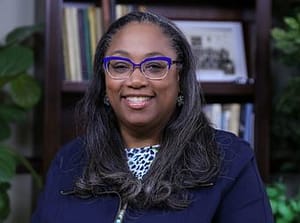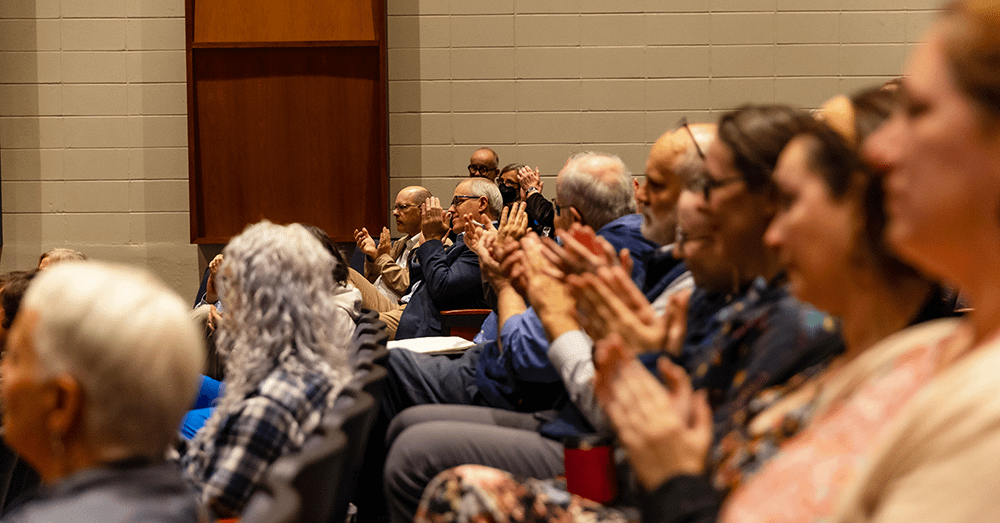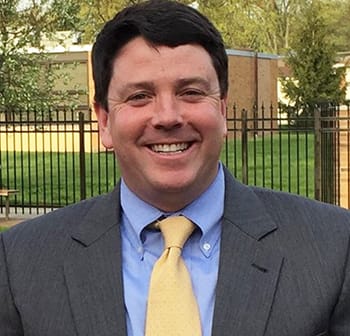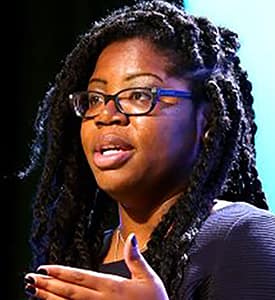Professor Griffith elected national ACLU officer at crucial time
As secretary, Saint Michael's journalism professor to have key role with country's focus intensifying on civil rights issues

Traci Griffith
“So many people are looking at ways to make a difference today, and this is mine,” says media law expert and civil rights activist Traci Griffith of the Saint Michael’s College faculty about her recent election as secretary for the executive board of the national American Civil Liberties Union (ACLU). “You have to decide where you are going to put your time and talent and money to leave the world better than when you got here.”
Griffith, professor of media studies, journalism and digital arts, has been making the most of a one-year leave from teaching that she planned even before the COVID-19 pandemic. She feels grateful for the opportunity to optimize the extra time that a break from classroom teaching allows so she can engage on urgent matters of rights and race at a pivotal moment in history.
This week Griffith, who began her career as a broadcaster, was wrapping up a well-received four-part series about racism in New England that she co-hosted for the New England News Collaborative, and this past Friday and Saturday during a lengthy ACLU Board Zoom meeting, she won support to be one of four top officers of that board alongside a president, vice president and treasurer.
“I’m so honored to be in the mix because these are high-powered people who have fought major civil liberties battles,” she said, noting that some of her now fellow officers personally knew the recently deceased Supreme Court justice and women’s rights icon Ruth Bader Ginsburg. Ginsburg founded the ACLU’s Women’s Rights Project as a young lawyer. Her towering legacy and the advancement thereof was a focus of conversation during the recent Zoom meeting.
“Just being with this group of people gives me such a sense of hope,” Griffith said – “just knowing that, given the challenges that we are facing with our government, we have such impressive and experienced good people who are working within the system to correct the errors in the system.”
She enumerated areas that she anticipates taking center stage in her coming months and years as an ACLU officer, given a historic fast-approaching election and a jarring global pandemic that are coloring the landscape.
“Right off with the pandemic and election you can think of an issue like the right to access to health care … or denying people the ability to vote by mail — that is a civil liberties issue related both to the pandemic and the election,” she said. Still other questions arise surrounding privacy: “With all these people being tested for COVID, how is that information going to be used or how could it be used against you in the future?” she wondered. Similarly, once a vaccine is approved, “is this going to be like a flu vaccine where you get to choose whether you take it, or like ones required now for kids to attend school?” And, since some citizens oppose vaccines on religious grounds, that’s another area of civil liberties to address. She stressed that ACLU work is never about siding with one party or another in a partisan way, but always about advancing civil rights in any area where ACLU leaders identify that need.
She said a major reason for the most recent Zoom meeting was to hear from candidates presently seeking to be the new ACLU president, a post up for election this year with Susan Herman, president since 2008, near the end of her tenure. “A new president doesn’t happen that often in the 100-year history of the organization,” said Griffith, who was impressed by the eminent qualification of all the candidates that the board heard from – all “top lawyers doing civil rights work for a long time and members of the executive committee for a while.” The chance to work more directly with such a group appeals to her, Griffith said, and when she learned the present secretary was not seeking a new term, she put her hat in the ring and won.
Griffith has been part of the national ACLU for six years — first as Vermont affiliate representative; then, two years ago, in a deliberate strategic move to advance Vermont’s top issues and concerns more effectively, she ran for and won an at-large seat so that another Vermonter (restorative justice activist Kim Jordan of Winooski) could take the affiliate position and double Vermont’s national ACLU presence. Griffith’s background as an attorney, professor and professional journalist should help her in the new role, which includes signing off on documentation for ACLU rules and regulations and keeping an eye on important documents for the organization, she said. The job also will mean more meetings on matters that might not be for the entire board to consider, and directing staff in particular areas.
Likely changes in the composition of the Supreme Court will raise issues soon too, she anticipates, from LGBTQ rights to questions of reproductive rights/right to life and immigration issues. “We still have kids in cages,” she said. “There’s just so much.”
“Everybody has to find what they can do with all the racial justice issues going on,” she said. “So many people say to me, what do I need to do? How do I make things different? And I say everybody has to find their place, whatever that is – some are in the street every day protesting and making change that way; some are writing letters to elected officials or to voters in swing states saying this is the change I feel needs to be made; while others are working on police reforms and joining committees in communities across the country, working on that.”
For herself, Griffith chose the ACLU as her primary agency for change since “the ACLU does work that from my perspective is vitally important to the betterment of our society.” Many excellent organizations focus on single issues such as juvenile justice or capital punishment or voting rights, but “the ACLU works on them all, so I feel this is where my place is, where I put my time and talents and money toward making this nation better.”
As a Saint Michael’s professor, Griffith teaches about media law, free speech and First Amendment issues, “so I came to it through that door – that’s the intellectual part of my engaging on civil rights, but the life part of it for me is racial justice and my son, working to be sure my son doesn’t get shot on the street or making sure our voting is fair and equitable so people don’t have to drive three hours to drop off their ballots.”
She is also concerned about national security, privacy and other First Amendment issues raised by such developments as facial recognition technology. “Who has that, and what they do with it?” she wondered rhetorically.
While Griffith understands in this challenging pandemic “why people might just want to go to work and love their family,” leaving them few reserves to engage in civil rights battles as well, that understanding just makes her feel even more responsibility to double down given her capacity to deal with it in her present circumstances and while on leave from teaching.
“When chaos is raining all around you, all you can do is keep your head up and keep paddling. The fights still need to be fought,” she said. “I’m in — I love it, and it gives me peace of mind.”





